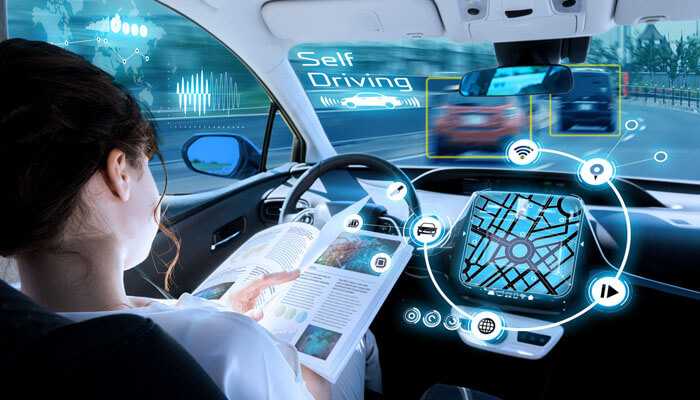California: New data on tests of self-driving car technology in California suggests that Alphabet Inc.’s efforts remain ahead of many rivals in the intensifying race to bring fully autonomous vehicles to the roads. Waymo, the Alphabet unit that began as a Google self-driving car project eight years ago, logged 635,868 miles on California roads between Dec. 1, 2015, and Nov. 30, 2016, according to its annual report to the state Department of Motor Vehicles, which oversees self-driving test vehicles.
The number of times the Waymo system was deactivated—because the technology failed or a human operator took control of a vehicle because of concerns—fell to 0.2 times per 1,000 miles traveled from 0.8 times a year earlier. That was far better than any of the other 10 companies that filed reports with the state.
California uniquely requires annual reports on autonomous cars issued permits to test on public roads. The reports released Wednesday only cover tests on its roads, but the information from the country’s most populous state offers a rare view inside industry efforts.
Twenty-one companies have permits to test self-driving cars on California roads, but many received them last year and won’t be required to file similar reports until later.
After Waymo, the largest number of testing miles in California were logged by Cruise Automation, the San Francisco-based startup acquired by General Motors Co. last year to accelerate its autonomous vehicle development. Cruise had 25 vehicles, mostly Chevrolet Bolt electric cars, that covered about 10,000 miles on California roadways in the period covered by its report.
Nissan Motor Co. increased the number of miles it covered to 4,100 from about 1,400 during the same period a year earlier.
Cruise had a disengagement rate of 18.51 per 1,000 miles last year, while Nissan’s was 6.83.
The overall low number of miles tested and the rate of disengagements underscore how much work is still ahead for fully automated driving to become widespread, said Dave Sullivan, an analyst for automotive consultancy firm AutoPacific. “The technology is still not anywhere close to where it’s ready for prime time yet.”
Tesla Inc., which has gained attention for the semiautonomous features already in its cars using its Autopilot system, logged 550 miles of public testing of its fully autonomous cars on California roads last year. That testing began in October, the month that Chief Executive Elon Musk promised to demonstrate by the end of 2017 a fully autonomous car that could travel from Los Angeles to New York. Its vehicles in California had a total of 182 disengagements in October and November.
Tesla told regulators in its report that it’s conducting testing in simulations, labs, test tracks, and other parts of the world. Volkswagen AG, which had been one of the leaders in testing in 2015, didn’t conduct any public tests in California last year, and Daimler AG’s Mercedes-Benz decreased the number of miles it drove to 673 from 1,739 during the same period a year earlier.
Uber Technologies Inc. balked at applying for a testing permit for its autonomous car program last year in a battle that pitted it against state regulators, raising questions about whether the company wanted to avoid disclosing information about its efforts. Uber said it objected because it didn’t think its technology fell under the state regulation requiring a permit. It eventually pulled out of the state, relocating cars to Arizona.
“California’s reporting requirements allow unique insight regarding the progress of the development of a company’s automated driving system,” Eric Paul Dennis, an analyst at the Center for Automotive Research in Ann Arbor, Michigan, said. “If I were doing something that I didn’t want my competitors to know about, I would test anywhere other than California.”
Article Originally Written by Wall Street Journal



